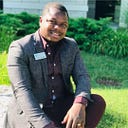ECONOMIC EMPOWERMENT OF VULNERABLE WOMEN IN THE PERI-URBAN ZONE OF ZONGO, BURKINA FASO
1. Context and Rationale:
All over the world, economic exclusion hits women more than men. Social norms affect women’s work by dictating how they should live and undervaluing their potential. Yet women make a strong contribution to the economic life of their community and to the growth of their country through the many activities in which they are involved. However, these activities carried out by women are concentrated in low-value sectors (domestic work, informal economy, etc.).
Social problems remain important and inequalities are mainly observed to the detriment of the poorest women. However in 1948, the Universal Declaration of Human Rights had just established the principle of equal rights for all human beings, regardless of sex, age, culture, social class, religion, state, community membership. This declaration thus made women equal to men in terms of rights. The many development actions and policies emphasize parity, equality and equity in order to give women a place of choice in traditionally male-dominated societies. To exclude women is to exclude half the potential of the world’s population. No social or economic development can therefore be possible if half of humanity is left behind.
In Burkina Faso, where women represent more than half of the population, they would constitute an invaluable potential to boost economies and considerably reduce household poverty. Moreover, goal 5 of the SDGs which is to “Achieve gender equality and empower all women and girls” is a cross-cutting foundation for all the Sustainable Development Goals for 2030. Despite the important role that rural women play in the various agricultural sectors, they do not fully enjoy their rights and are subject to multiple discrimination. They face various cultural and institutional constraints that hinder the realization of their full potential. In Burkinabé society, there is a deeply rooted andocentric idea that women are inferior to men and placed under the tutelage of men.
The objective of this proposal is to create income-generating activities in the field of poultry farming, a promising sector but difficult to access by the populations targeted by the project. It will allow women to gain some financial autonomy and positively influence their living conditions.
2. Presentation of the project and the intervention area:
2.1. Presentation of the intervention area:
Zongo is a small village located 20 km to the westfrom the center of Ouagadougou. In this village, the population lives mainly on agriculture, crafts and small businesses. Women are as marginalized as it is showed in national sector statistics in areas such as education, health and employment. Each year, during the rainy season, many houses are washed away because of their location in lowlands and the materials used for the construction of houses, mainly wood and poor land. The precarious situation that prevails in Zongo is the result of difficult access to financial and economic resources.
2.2. Presentation of the project:
The project consists of identifying 4 women from the village of Zongo living in difficult economic conditions and proposing solutions to their common problem. This will involve providing 5 hens and 2 Rooster to each woman, taking care to build premises that can accommodate them (Chicken coop).
At the end of 6 months, the forecast is that the chickens will multiply and reach the number of 37. After a year, we will have more than 120 chickens per female.
After the first year of implementation, each of the female beneficiaries initially passes 5 hens and 2 roosters to two new beneficiaries and so on. This is a structuring project whose long-term beneficiaries can be estimated at hundreds of women. As the chicken market is characterized by very high demand and low supply, it is therefore a good channel to lift women out of poverty by allowing them to obtain a large and regular income through the marketing of their chickens and derivatives products (eggs …).
3. Presentation of the project management team
3.1. Project Manager
Macroeconomist, Gender specialist and certified Humanitarian / Community Project Manager.
“This project is for me one more opportunity to come to support vulnerable populations who are in deficit of resources to meet their basic needs. I am convinced of the relevance of this project for this layer of our population. “
3.2. Project assistant
Master in Educational Sciences and Master in Philosophy.
Interim manager of the Gender and Handicap department.
“Through this participation, I want to give energy to the marginalized people by supporting their empowerment and to help them regain their identity and live in dignity”.
Designed by the SeedAf team, August 2020. For more info about the association click on https://www.facebook.com/SupportingDevelopmentInBurkinaFaso
Supported by Aid & Save, #Ethereumgrants and #Colmenalabs
